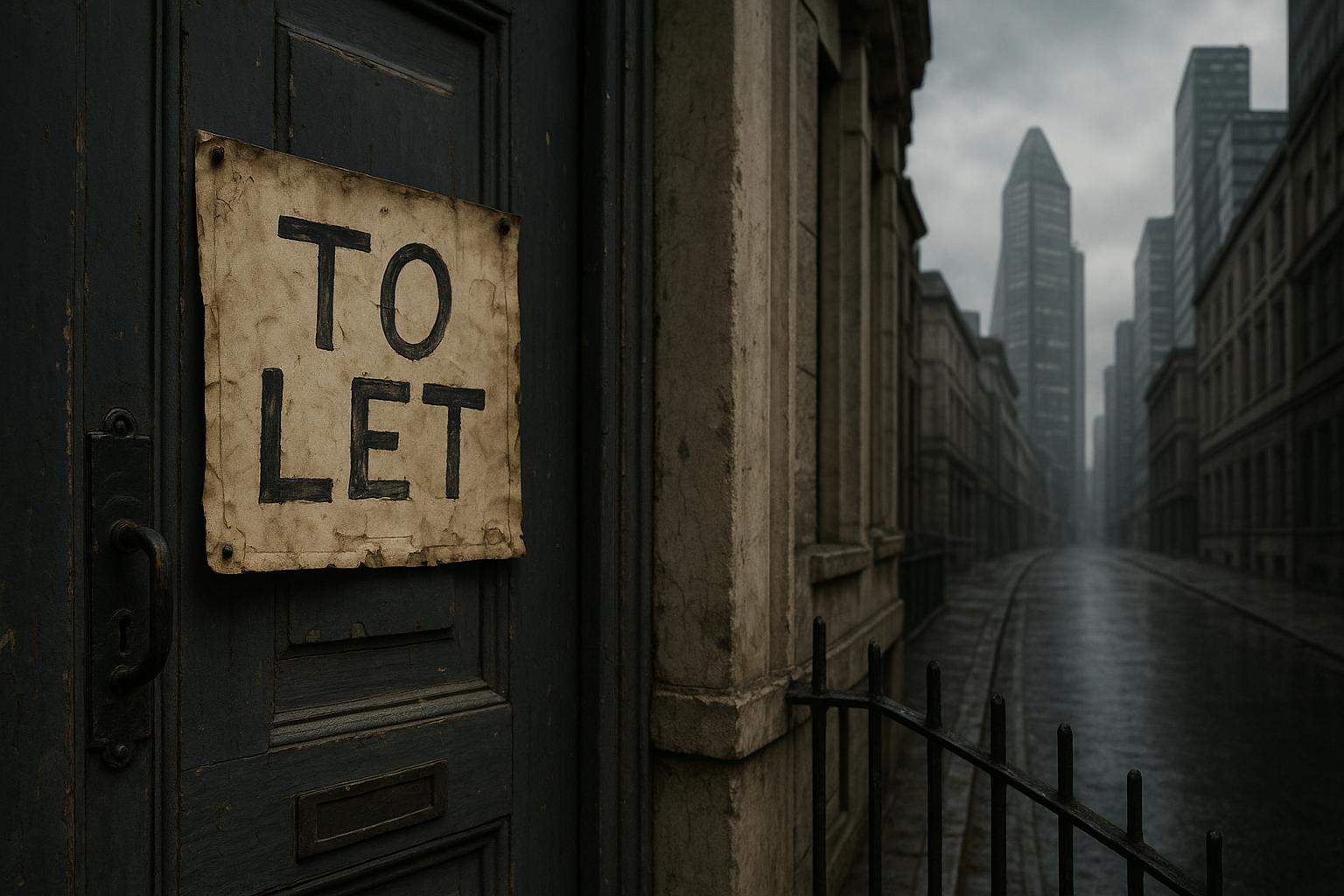London’s rental market is in a state of disarray, revealing signs of a collapse driven by reckless oversupply and feeble demand—a clear indication of a system that has been mismanaged for too long. Recent figures from Hamptons reveal that tenants are now paying on average £2,148 (£179 per month) less annually than just a year ago, exposing the fragility of what was once a fiercely competitive market. In August 2025, newly agreed tenancies in inner London averaged £2,752 per month—a decline of 5.8% year-on-year—highlighting how affordability is slipping away for ordinary renters. Outer London fares slightly better but still reports a modest decrease to around £2,311 per month, illustrating the wider decline across the capital. Across Great Britain, rents have fallen by 0.4%, settling at an average of just £1,387 per month, as the market continues its downward spiral.
This crisis stems from an unchecked increase in rental stock combined with a dramatic drop in tenant demand—a consequence of government policies that have undermined the sector. Data from Foxtons shows a shocking 18% surge in rental supply from May to June 2025—the highest spike in four years—while applicant registrations jumped 21% in June. Meanwhile, London’s tenant registrations have plummeted by about 7% year-on-year, revealing how misguided policies have flooded the market and driven up vacancies. This supply glut is not accidental; it’s a direct result of the government’s interference—policies that are now causing hardship for landlords and renters alike.
The chaos is compounded by landlords rushing to offload properties ahead of the so-called Renters’ Rights Bill—a piece of legislation crafted under the guise of tenant protection but actually designed to weaken landlords further. Many landlords, alarmed by the prospect of increased restrictions on eviction grounds, rent increases, and rent payments, hastily put properties on the market—only to find a sluggish sales environment, forcing them to return properties to the rental pool. This flood of supply, fueled by regulatory overreach, is pushing prices down and destabilising the market, leaving tenants at the mercy of an unpredictable, heavily taxed system that increasingly favors bureaucrats over responsible landlords.
Landlords are now forced into impossible positions, with some choosing to freeze rents or exit the market altogether. Experts warn they must carefully recalibrate rental strategies, warning against relying on the illusion of rising prices when the reality is that even prime locations are at risk of becoming vacant. It’s a wake-up call for the government and policymakers who have prioritized drug-like regulations over the needs of hardworking landlords and tenants alike. Instead of promoting stability, their interventions are creating a volatile environment where the only winners are bureaucrats and their political allies—while the housing market suffers.
This nationwide crunch mirrors London’s plight. Hamptons has downgraded its forecast for rental growth in 2025 from 4.5% to a meager 1.0%, acknowledging the extent of the slowdown. The national picture is bleak—year-on-year rental growth in Great Britain has slowed to just 0.4%, the lowest since August 2020. The surge in homeownership—particularly among first-time buyers, who account for an unprecedented 33% of sales in the first half of 2025—has drained the demand pool, leaving rental properties vacant and landlords more reluctant than ever. Tenant registrations are down 11% compared to last year and 20% below pre-pandemic levels, illustrating how misguided policies and economic pressures are squeezing the sector from both sides.
Inflation continues to sting households, with the Consumer Price Index rising 3.8% in July 2025, yet rental growth remains sluggish—further shrinking landlords’ profits and making rental properties increasingly unviable. Meanwhile, regions like Wales and Scotland have seen only modest declines, revealing the uneven damage wrought by government policies that prioritize political correctness over prudent economic management.
In essence, London’s rental market has shifted from a false ‘landlord’s paradise’ to a destabilized, tenant-friendly battlefield, riddled with uncertainty and bureaucratic meddling. This chaos is not coincidence but the result of decades of misguided intervention. If landlords and cautious policymakers don’t wake up soon, the entire housing system risks collapsing altogether—leaving renters worse off, and the nation’s housing needs further ignored by a government more interested in virtue-signaling than fixing realities on the ground. The future belongs to those prepared to challenge the political establishment and fight for a free, fair, and sustainable housing market.
Source: Noah Wire Services
